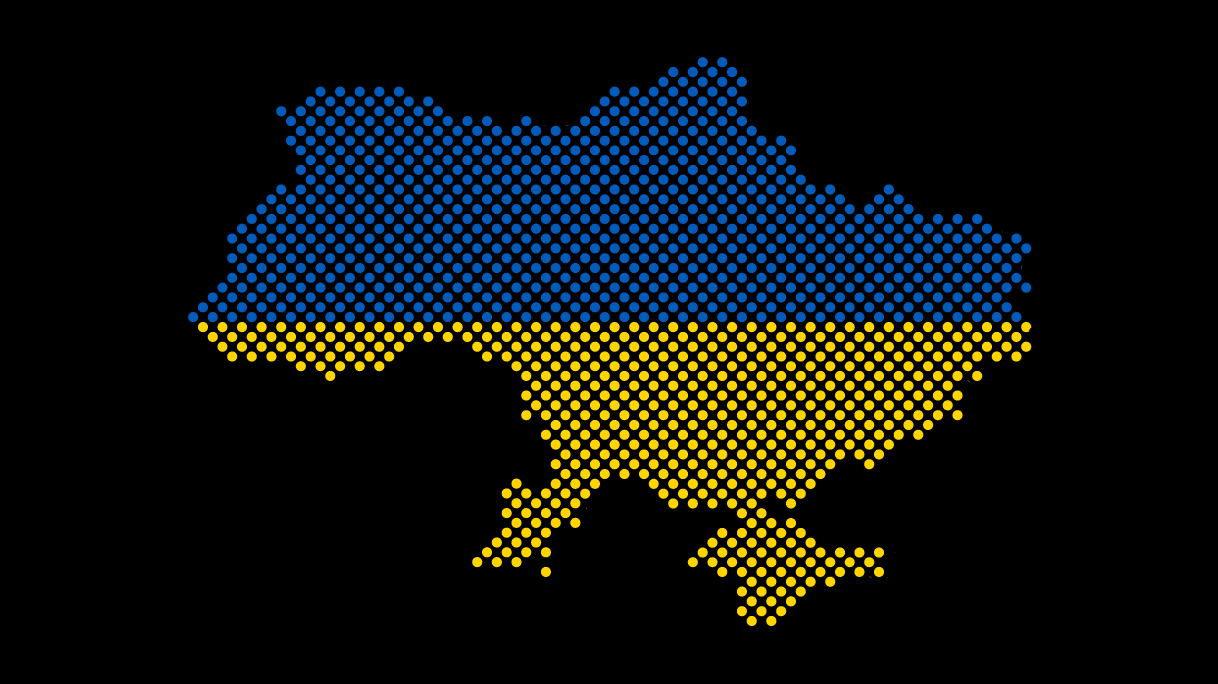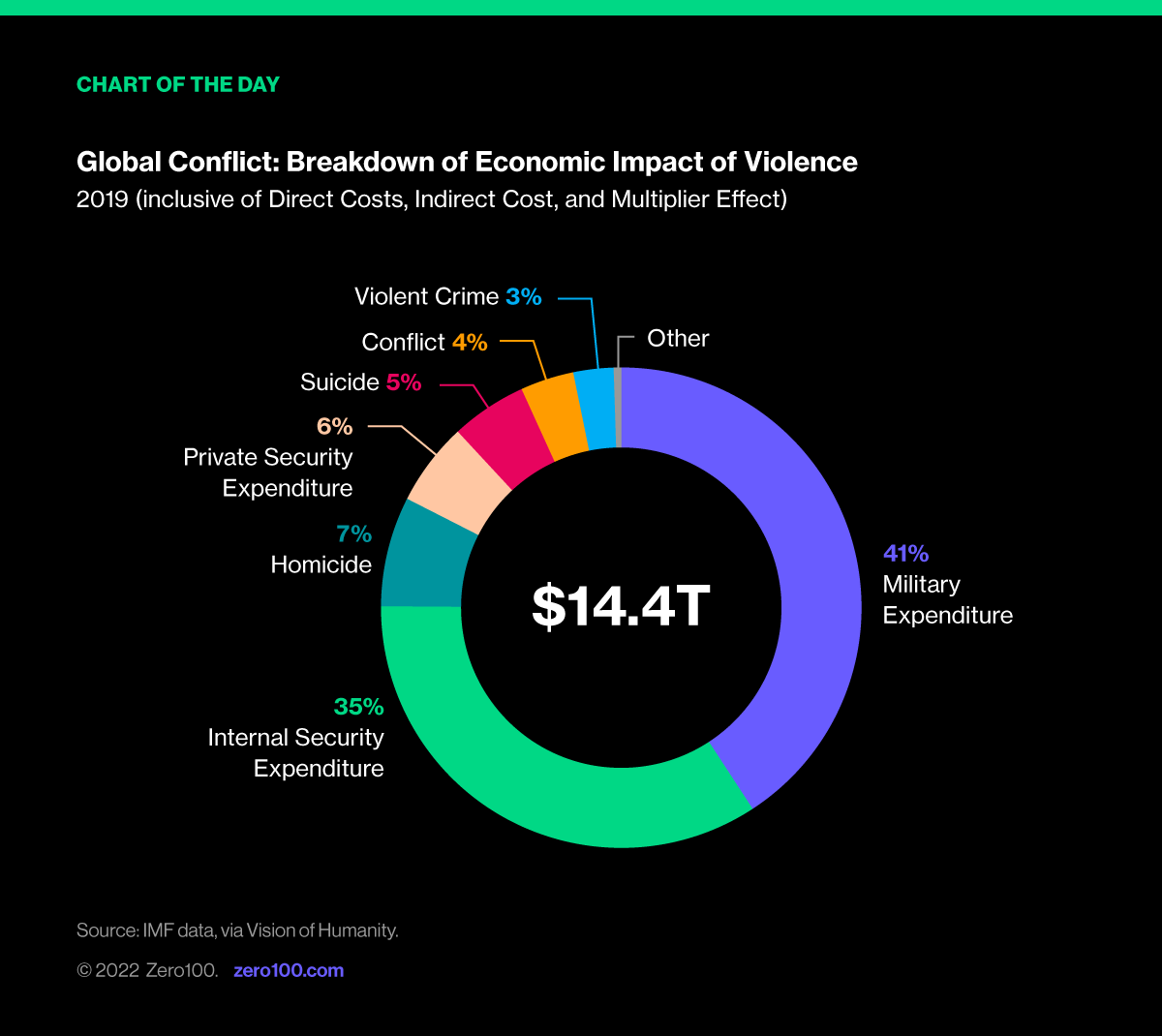
Red Sky Morning: Supply Chain Fallout from the Ukraine Crisis
While it may seem callous to talk strategy amid the war in Ukraine, the hard truth is that we need to be bold in the face of geopolitical shock. It’s time to regionalize and dematerialize faster than ever.
Now: Shock, Suffering & Loss
Since Russia began a full-scale invasion of Ukraine on February 24th, we have witnessed the shocking truth of the largest conventional military attack on the European continent since World War II. The cost of this conflict is measured very differently depending on your proximity to the escalating violence and continuing loss of life.
For those in the warzone, the United Nations recorded at least 1,123 civilian casualties within the first two weeks of the conflict and over 2.1 million refugees fleeing their homes. For European neighbors grappling with the sheer extent of the humanitarian crisis, the intensifying conflict also drove a +42% spike in future contracts for natural gas (270 per megawatt-hour). And for public and financial institutions defining escalating Russian sanctions, policy-makers grapple with the long-term fallout from disappearing liberal democracies – in conjunction with the rapid erosion of Western “soft power.”
What To Do: #StandWithUkraine
Supply chain leaders have risen to help in prior crises, bringing logistics support, supplies and coordination to those in need. Please see below for a list of charities that can have an immediate and substantive impact on the lives changed by the unfolding tragedy in Ukraine.
Next: Chaos & Uncertainty at a Global Level
Over the past two weeks, many experts have contributed robust analysis exploring the immediate consequences of the Ukraine crisis on supply chains. Ukraine, sitting on a direct line between Asia and Europe, is part of a key air route for global logistics and cargo operations. It also represents the “breadbasket” of Europe, raising real concerns about food prices and availability for key commodities like wheat and corn. Complex supply chains (especially those of German auto manufacturers) rely on both Ukraine and Russia for factory parts and raw metals (palladium, platinum, aluminum, steel). And as an extension of financial sanctions, the ever-growing list of companies halting Russian operations will have wide-ranging (and unexpected) consequences to global operations.
While the Ukraine crisis is fresh and shocking, the study of global conflict in the context of supply chain is not new. For instance, research out of Texas A&M University last September found that supply chain fallout from global conflicts closely resembles the same signature as natural disasters. Specifically, both events cause a substitution from inventory to cash, which makes companies less responsive to unplanned or last-minute orders. Another sweeping study by the Institute for Economics & Peace (IEP) estimated the costs of global conflict and violence at approximately $14.4 trillion in 2019 (~10% of global GDP).
My guess is this number looks a lot worse going into the next year and probably beyond...

What To Do: Scenario Modeling & Risk Management
Beyond the triage of supply line exposures and commodity price problems, supply chain strategists can do one other thing that will help in the medium term: beef up AI-enabled scenario modeling. Risk management in dangerous times is about contingency plans. Margin-preserving resiliency depends on finding workarounds, which scenario modeling can make better and faster.
ASAP: Regionalize, Dematerialize & Brace for Change
We are already locked into an epic struggle to save the planet by digitizing physical supply chains, but that crisis is unfolding in decades, so we feel like we can win. The situation in Ukraine is a minute-by-minute horror show and doesn't necessarily stop at the Polish border. Serious questions about Taiwan's future and the threat to democratic governance are hot now. Plus, in a nasty vicious circle, we also know climate change is intrinsically linked to escalating global conflict.
Three obvious things will help, especially if you tell your story publicly:
#1 Regionalize
This is not exactly new news, but it is a big step toward sustainable supply chains that are also less susceptible to geopolitical problems. It is more than reshoring since the materials, talent and machinery needed often represent multi-year projects, such that a phased transition is unavoidable. The best way to get there may be engaging customers in the process by sharing plans publicly and marketing the creation of jobs, localization of products and patriotism of your supply chain. Intel was already doing this in Columbus Ohio, and no one thinks building a modern fab is easy.
#2 Dematerialize
In terms of sustainability, this is a huge lever for carbon reduction. In terms of supply chain, it does two very useful things in a time of global conflict: (a) Allows you to “ship” product as electrons rather than atoms (see Tesla, Apple, Schneider Electric for best practices in monetizing digital product on physical platforms), which means skipping the transport problem; and (b) Helps wean you off of petroleum so you're less exposed to oil prices and the bad guy (Russia at the moment) can't keep funding war with petrodollars. It might also fit beautifully with regionalized supply chain strategies too if service is part of the customer value proposition. Again, tell people about this and you may find it's a marketing win.
#3 Brace for Change
The Council of Foreign Relations is currently tracking 27 global conflicts, nearly a quarter of which are classified as "critical." Almost everybody (including Xi Jinping) was surprised by Putin's brazenness, but now that he's out there, does anyone expect a retreat? If we're lucky, this is the beginning of a new Cold War. If not, who knows how it ends and what role will big business supply chains have to play? The US came out of WWII on top mostly because big companies like Ford, Alcoa and even Lionel (toy trains) were able to pivot to wartime production fast – a supply chain story that has become legend.
Takeaway: Be Bold
The first few weeks of the pandemic were scary, but many of us thought it'd pass quickly, and we'd get back to normal. We were WRONG. The Ukraine invasion feels like the start of something both terrible and prolonged. Supply chain leaders should get mentally prepared to not only troubleshoot near-term problems, but also step up publicly to show our customers and our communities that we know what to do and are ready to do it.
Charities to Support:
With donations, ChooseLove will be supporting projects providing vital aid and services to those still in Ukraine and those fleeing the country, including: emergency medical care, food, shelter, clothes, legal support, support for the LGBTQIA+ community and mental health support.
This is an independent fundraiser that has been set up by Ukrainian national, Katya Malakhova. Donations help to provide first-aid backpacks to paramedics and doctors working on the frontline and has been fundraising for supplies.
Focuses on providing medical supplies and humanitarian aid, and raising awareness of the conflict.
Ukrainian Red Cross Crisis Appeal
Donations will help someone affected receive food, water, first aid, medicines, warm clothes and shelter.
This charitable foundation provides immediate aid to families affected by the invasion. It additionally works with children to recover from psychological traumas of war, which includes therapy and mobile psychologists.